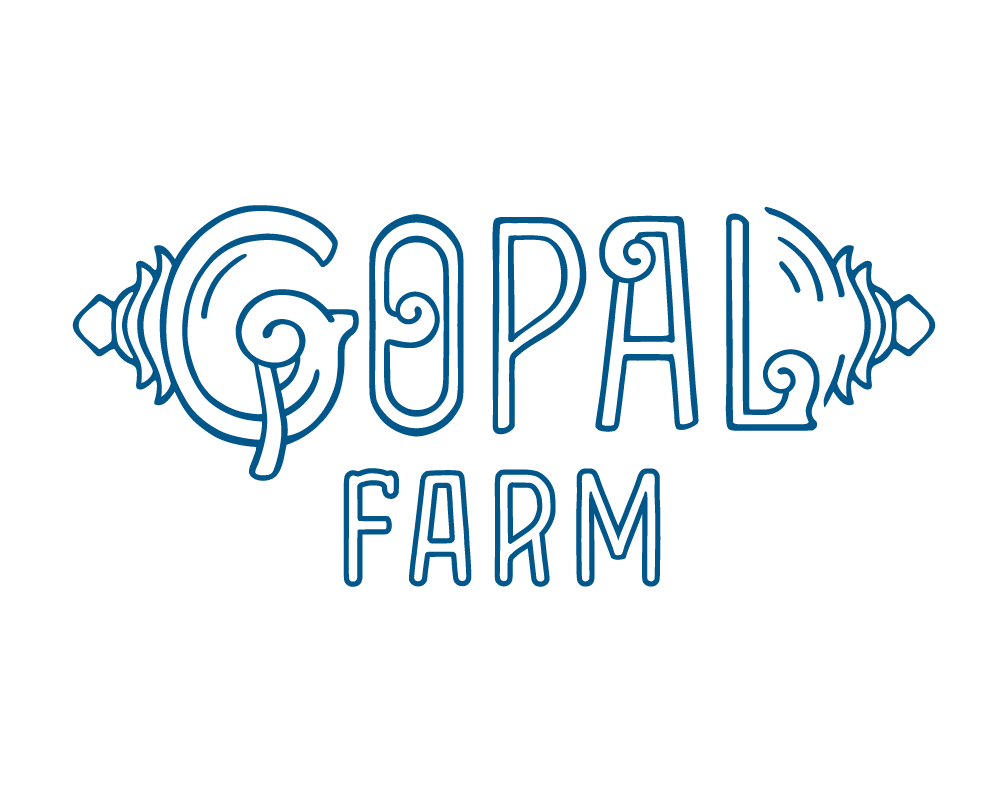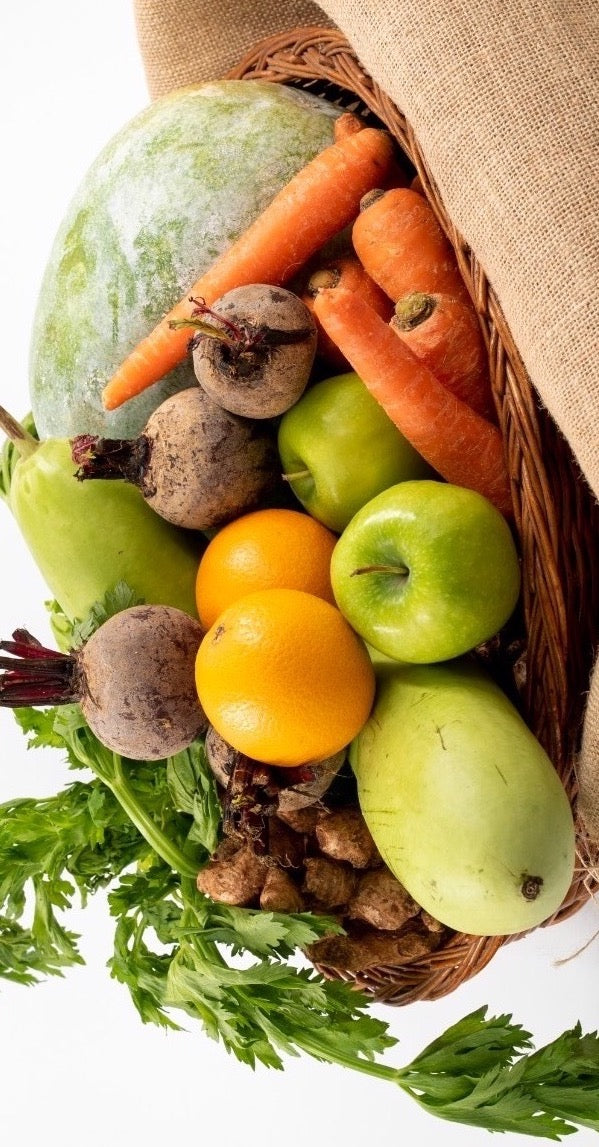Our 10-Point Conservation Plan
1. Carbon Fixing
We are continually improving our land management practices working in harmony with our livestock’s grazing and foraging habits as they naturally enhance the soil health, biodiversity, and the carbon sequestration properties of our pastureland.
We are also expanding our agro-forested acres to further increase the “carbon sink” capacities of our farmland. We have partnered with Ethan Soloviev, an influential proponent of regenerative agriculture and co-founder of TerraGenesis, to plant 100 American Chestnuts and 80 Hazelnuts on a few acres. We plan to further plant 100 pine nut trees, 100 Pawpaw fruit trees, 100 American Persimmon trees, and an additional 25 Sugar Maple trees.
2. Our Carbon Footprint
Complementing the above carbon sequestration efforts, we make conscious efforts to continually reduce our carbon footprint. To minimize the amount of carbon expended on transportation of our produce and to guarantee its freshness, we confine our market to a 250-mile radius of the farm.We also plan to contribute to the reduction of food miles in our region by growing out-of-season and non-native produce in renewable energy run greenhouses, the produce that would otherwise be shipped from California, Florida and Central America to satisfy New York City market demand.
We received grants from the USDA’s Natural Resources Conservation Service (NRCS) in 2018 to construct two high tunnel systems and will receive two additional grants in 2019. These systems, also known as “hoop houses,” will enable us to increase the yield and nutrient content of our local food economy and to extend our growing season. Added benefits of hoop houses are their ability to protect crops from pest infestations, and reduce water use through efficient drip irrigation systems.
3. Energy
Heat and Electricity
Outdoor Wood Boilers
Heat requirements for our barns and greenhouse will be supplied by wood boilers with fuel sourced from our woodlot and from waste wood from local businesses. The ash byproduct will be added instead of lime to the soil to augment pH, thus reducing the over-acidification otherwise common to the soils of the Northeast. The New York State Energy Research and Development Authority (NYSERDA) has designated wood boilers as efficient alternative heating systems, and we have applied for incentives offered by NYSERDA for their installation.
Green Building Design
We are collaborating with renowned green architect and greenhouse researcher Michael McDonough to design and construct a year-round solar and geothermal greenhouse, as part of our efforts to incorporate green design into all future construction, including barns, office space, and cottages for employees.
4. Water Conservation
We make every effort to minimize water use and to preserve the existing water table. We do not use bore wells to extract water from our aquifer. Our water is sourced through rainwater harvesting, the expansion of our pond, and the installation of hand-dug wells and hand pumps that source water from the rain-fed water table.
5. Maintaining Soil Health
To enhance soil health we plant cover crops, practice crop rotation, and envisage using draft oxen to till the soil, thus reducing tractor compaction, which in turn enhances our soil’s carbon sequestration properties. No chemical pesticides, fertilizers or any other artificial chemicals are ever applied anywhere on the farm. All fertilizer is organic, consisting of our own cows’ manure and tree litter created using efficient, Indore compost boxes. Our cows are antibiotics and synthetic hormone free and pasture raised ensuring the purity, chemical free, and high nutrient quality of their manure.
6. Livestock
All Gopal farm dairy products are 100 percent organic (certification in progress) and our cows are pasture- and grass-fed throughout their lifetimes. We plan to apply for Biodynamic Dairy Certification, a designation currently held by only four U.S. dairy farms. We are partnering with the USDA Natural Resources Conservation Service on a complete conservation plan for our livestock operations that will include a rotational grazing system with appropriate fencing to improve soil health, to conserve grass and water, and to increase biodiversity. The plan will also help us increase cow manure production using digestors; create a comprehensive water conservation system for all farm operations, and to further conserve soil by constructing concrete pads below our cow’s winter feeding stations.
7. Integrative Pest Management
We use no chemical pesticides and instead rely on a variety of time-tested natural methods of pest control including the introduction of beneficial insects such as ladybugs (which consume aphids), praying mantis (which capture mosquitoes, moths and flies), and nematodes (microscopic organisms that control grubs, gnats, and fleas). We have installed bat houses to provide a habitat for these voracious mosquito-eaters. We have retained a 12-acre forest intact, not just for its carbon sequestration properties, but to provide a habitat for a variety of insectivorous birds. We plant selected flowering annuals and perennials on our grounds to attract pollinators and other beneficial insects. Our fowl—chickens and ducks-- eat bugs and provide manure for our compost. As an added bonus, as they engage in foraging behavior, scratching the ground with their claws and beaks, fowl perform the task of breaking up and aerating cow manure clumps!8. Land
Our land will be conserved mainly for agriculture for future generations. We are working on an agriculture conservation easement such that portion of the conserved land will be conserved for a community pasture, a first in the country.
9. Biodiversity
We have a 12-acre woodlot on the property that preserves natural biodiversity. Moreover, we do not do monoculture farming. We are also preserving many ancient vegetables of the world by enhancing and popularizing ancient Indian vegetables, herbs, and spices.
10. Community
In the past century, we humans have moved away from living in communities. While we may now live in close physical proximity—in cities—or participate in virtual communities, yet we sense something is missing. We live in the absence of the kinds of communities that once enabled us to share our daily lives, struggles, and joys in meaningful ways - interdependency.
At Gopal Farm, our goal is to be an antidote to this increasingly human isolation. Apart from farmers as employees, our farm plan is intentionally designed to nurture an on-site sharing network—enabling farmers to lease our land, farm machinery, and tools at reasonable rates; and to share knowledge, skills, and expertise. We are developing a market mechanism to subcontract farming that ensures our own early financial security and that of our fellow farmers. We also plan to establish a farm-based school, yoga center, and community center. We are excited about participating in what will emerge from these collaborations in the coming years.


